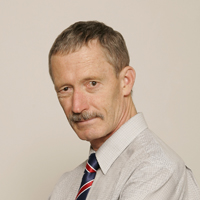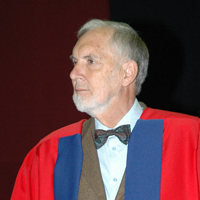Latest News Archive
Please select Category, Year, and then Month to display items
12 October 2020
|
Story Dr Cindé Greyling
|
Photo Supplied
 Exercise and nutrition can work wonders for your mental health – you don’t even have to ‘feel like’ or ‘enjoy’ moving around and eating well for it to work – it does its thing anyway.
Exercise and nutrition can work wonders for your mental health – you don’t even have to ‘feel like’ or ‘enjoy’ moving around and eating well for it to work – it does its thing anyway.
Nowadays, people talk about mental health like it is the common cold – which is good! But do you know what it really means? Being mentally healthy does not only refer to the absence of a mental illness but includes your emotional and social well-being. One would almost want to add physical well-being too, since a healthy body does indeed support a healthy mind. However, since so many people consider themselves ‘mental health experts’, some myths have been sold as truths.
Myth #1 – You are doomed.
Nope. Never. You are never doomed. There is always help. Mental-health therapies range from self-help, talk therapy, medication, to hospitalisation in some cases. Somewhere on this spectrum of treatments, there will be something that works for you. But you must be willing to get the help and do the work. For starters, exercise and nutrition can work wonders – you do not even have to ‘feel like’ or ‘enjoy’ moving around and eating well for it to work – it does its thing anyway.
Myth #2 – It won’t affect you.
It may. Research suggests that one in five people may suffer from a mental illness at some point in their lives. Being well now does not mean that it will stay that way. Biological and environmental factors both impact your mental health. Hopefully not, but at some point, you may experience an event that affects your mental health.
To remain integrated in a community is always beneficial
for anyone suffering from a mental or physical condition.
Myth #3 – Someone struggling with mental health must be left alone.
Hardly! To remain integrated in a community is always beneficial for anyone suffering from a mental or physical condition. You do not need to fix them, but to remain a friend. Continue to invite them, even if they decline. Do not judge, and do not try to understand. Just stay around.
Go and be kind to yourself, and to those around you.
Two academics will be sorely missed
2013-04-02
|
 
|
Prof Andrew Marston and Prof Bannie Britz
Photo: Supplied
02 April 2013 |
The staff and students of the University of the Free State (UFS) are deeply saddened by the recent passing in Bloemfontein of two of the university’s most esteemed and renowned academics, Prof Bannie Britz and Prof Andrew Marston.
Prof Britz was the Head of the Department of Architecture from 1992 to 2000. He was renowned in his field, winning numerous prizes for Architecture, including the Gold Medal for Architecture from the South African Academy of Arts and Sciences.
“As professional architect and urban designer, Prof Britz was a much awarded architect who received numerous award of merit from the South African Institute of Architects for buildings erected in South Africa over the years,” said Martie Bitzer, Head of the Department of Architecture.
Apart from his acclaim elsewhere, Prof Britz also played a major role in the day-to-day activities of university’s staff and students. He was responsible for the design of the many walkways on campus and the refurbishment of the Main Building on the Bloemfontein Campus. For the many contributions in his field, Prof Britz was awarded an Honorary Doctorate by the UFS in 2007.
Prof Andrew Marston, a specialist in natural product chemistry and methods associated with the isolation and analysis of medically important chemicals from plants, was appointed from Geneva, Switzerland in 2009 under the UFS Strategic Cluster for Advanced Biomolecular Research.
He obtained a B-rating from the National Research Foundation (NRF) in 2011, and was consequently appointed as a senior professor in die UFS Senior Professor Programme. “He has made valuable contributions to the UFS in terms of teaching and postgraduate supervision, as well as research. In his short stay at the UFS, he already co-authored more than ten papers in international chemistry literature,” said Prof André Roodt, Head of the Department of Chemistry.
His research group was part of a multilateral agreement in the European Union (EU) with a number of African and three European universities. He obtained new research funding from the Seventh Framework Programme of the EU for the Building Sustainable Research Capacity on Plants for Better Public Health in Africa project, from the Norwegian Research Council for bioprospecting and the isolation and structure determination of compounds from plants and algae, and from the South African Rooibos Tea Council.
The memorial service for Prof Britz took place on Friday 5 April 2013 in the Berg-en-Dal Dutch Reformed Church in Bloemfontein. The service for Prof Marston took place in the Trinity Church, Charles Street, Bloemfontein.